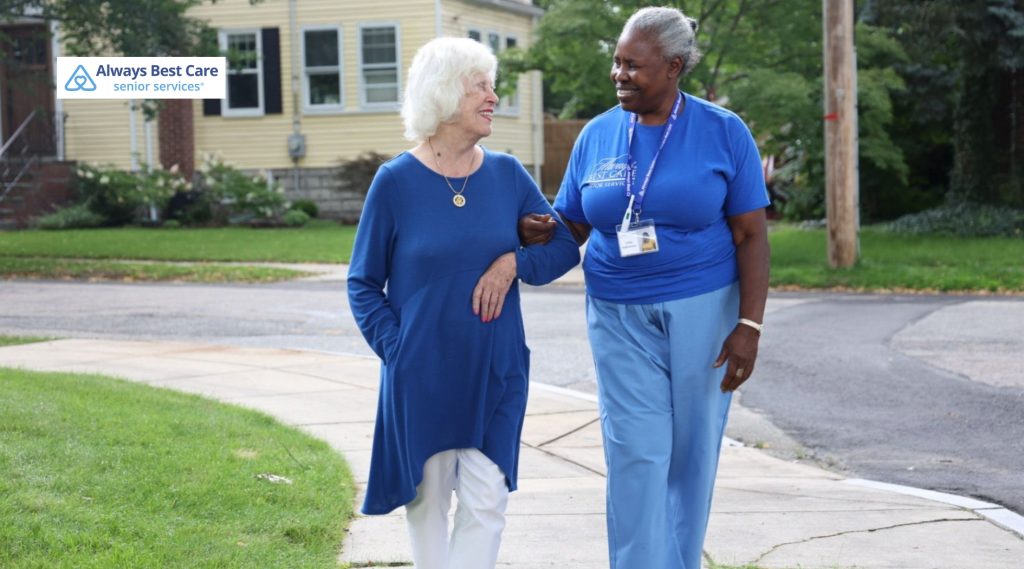Knowing When It’s Time: Key Signs for Hospice Care in Manchester, CT

No one wants to face the possibility that someone they love may need hospice care. It’s an emotional crossroads, full of questions and “what ifs.” But knowing the signs can make all the difference—giving us the chance to focus on comfort, dignity, and the kind of compassionate care every family deserves. At Always Best Care of Manchester, CT, we help families spot the clues, understand their options, and move forward with confidence.
What you will learn:
- The key physical signs that may indicate it’s time to consider hospice care for your loved one.
- How emotional and behavioral changes can be a signal that hospice support is needed.
- The medical factors doctors consider when recommending hospice care, and how it focuses on comfort rather than curative treatments.
- How to start the difficult conversation about hospice care with your loved one and family members.

Table of Contents
When Should We Consider Hospice Care in Manchester, CT?
Life’s unpredictable, and illness doesn’t follow a script. Sometimes, despite every effort, a loved one’s health keeps slipping. Recognizing when hospice care is the right step isn’t just about medical charts—it’s about noticing changes in daily life and emotional well-being.
Physical Signs to Watch For
- Frequent hospital visits: If trips to the ER become the new normal, it’s a sign that managing symptoms at home is getting tough.
- Rapid or unexplained weight loss: The dinner table stays empty, and clothes keep getting looser.
- Breathing troubles, even at rest: Reliance on oxygen, shortness of breath, or gasping for air can mean it’s time to talk about comfort-focused care.
- Pain that’s hard to control: When pain meds just aren’t cutting it anymore, relief and comfort should take priority.
- Recurring infections: The body’s defenses just aren’t bouncing back.
- Trouble moving around: Getting out of bed or walking to the kitchen takes more help than ever.
- Difficulty with daily tasks: Bathing, dressing, and eating become uphill battles.
Emotional and Behavioral Clues
- Pulling away from loved ones: Choosing sleep or quiet over visitors and conversation.
- Losing interest in favorite things: Hobbies, routines, and activities lose their spark.
- Emotional ups and downs: Anxiety, sadness, or fear start to overshadow the good days.
- Confusion or disorientation: Forgetfulness, trouble following conversations, or getting lost in familiar places.
These changes aren’t just about the body—they show how illness touches every part of life.

Medical Considerations
A doctor might suggest hospice when:
- The diagnosis is terminal, with a prognosis of six months or less.
- Treatments stop working, or the side effects are just too much.
- The goal shifts from “curing” to “making the most of each day.”
Hospice isn’t about quitting—it’s about changing the focus to comfort, dignity, and quality time.
How Hospice Care Supports Us
Switching gears to hospice means your loved one gets:
- Expert pain and symptom relief: A team of pros focused on comfort.
- Emotional and spiritual support: Not just for the patient, but for us, too.
- 24/7 help: When something comes up, someone’s always there.
- Respite care: A break for family caregivers who need to catch their breath.
- Guidance on tough decisions: End-of-life planning with respect and empathy.
Far from less care, hospice offers more—more comfort, more support, more peace.

Starting the Conversation
Nobody wants to talk about hospice, but waiting too long means missing out on the help and comfort it brings. Here’s how we can make it a little easier:
- Pick a quiet, calm moment—no interruptions.
- Listen to each other’s fears and wishes.
- Use gentle language—focus on dignity and comfort.
- Bring in the doctor for answers and reassurance.
When Is the Right Time?
If we’re seeing several signs—physical decline, emotional withdrawal, trouble managing symptoms—it’s time to start the conversation. Hospice care doesn’t mean giving up hope; studies show it can even help folks live longer by easing stress and discomfort.
Most importantly, hospice means our loved ones get to spend their final months surrounded by comfort, respect, and family.
FAQs About Hospice Care in Manchester, CT
Q: Does hospice care mean giving up on my loved one?
A: Nope! Hospice is about focusing on comfort and quality of life, not quitting.
Q: Can hospice care happen at home?
A: Absolutely. Care can be provided at home, in a hospice center, or even in a long-term facility.
Q: Who pays for hospice?
A: Medicare, Medicaid, and most private insurance plans cover hospice care.
Q: How do we start hospice care in Manchester, CT?
A: Reach out to Always Best Care of Manchester, CT, for guidance and trusted local providers.
Q: Can we change our minds after starting hospice?
A: Yes. If the situation changes, hospice care can be paused or stopped.

Discover the Signs That Signal It’s Time for Hospice Care – Get the Support You Need in Manchester, CT
Deciding about hospice care isn’t easy, but noticing the signs and understanding our options helps us focus on what matters most—comfort, dignity, and togetherness. At Always Best Care of Manchester, CT, we’re here to walk beside you, answer your questions, and connect you with the support your family needs.
Contact Always Best Care of Manchester, CT at (587) 210-1392 to learn more and schedule your care consultation.





